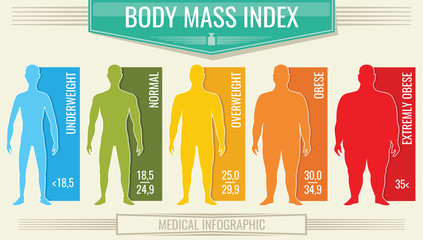Growing up with an obese parent can significantly impact a child’s physical and emotional well-being. Children often learn about healthy behaviors and habits from their parents, and having an obese parent can make it more challenging to develop a healthy lifestyle.
Additionally, the emotional impact of having an obese parent can lead to negative self-image and self-esteem issues. This article will explore the effects of growing up with an obese parent in more detail.
What Constitutes Obesity?

Obesity in adults is defined as having a body mass index (BMI) of 30 or higher. BMI is calculated by dividing an individual’s weight in kilograms by their height in meters squared. Obesity is a serious medical condition that can increase the risk of developing other health problems such as type 2 diabetes, heart disease, stroke, and certain types of cancer.
Obesity occurs when the amount of energy consumed through food and drink exceeds that used in daily activities and bodily functions. This excess energy is stored as fat, which over time, can lead to weight gain and obesity. Genetic factors, hormonal imbalances, and certain medications can also cause obesity.
Obesity is a complex condition that affects both physical and mental health. Physically, obesity can lead to various health problems, such as high blood pressure, high cholesterol, sleep apnea, and joint pain. Mentally, obesity can lead to depression, anxiety, and poor self-esteem. It can also affect a person’s quality of life, making it more difficult to perform daily activities and participate in social events.
Obesity is a growing public health concern worldwide, with increasing rates in developed and developing countries. For example, over 42% of adults in the United States were classified as obese in 2018. The increasing prevalence of obesity is partly due to changes in the modern environment, such as the availability of high-calorie foods and decreased physical activity levels.
A Parents Obesity and the Impact on Their Children
Obesity can significantly impact a parent’s ability to parent their children effectively.
Limit Physical Activity
It can limit their physical ability to keep up with their children, leading to a lack of physical activity and playtime. Obese parents may also struggle with energy levels and experience fatigue, making it difficult to engage in everyday activities with their children. This can lead to a lack of quality time spent together, which is crucial for child development and building strong parent-child relationships.
Facing Stigma and Discrimination
Obese parents may face social stigma and discrimination, leading to low self-esteem and a lack of confidence in their parenting abilities. A lack of parenting confidence can create a negative cycle where parents feel inadequate and ashamed, leading to further difficulties in parenting effectively.
Obese parents may also face negative attitudes and comments from others, including healthcare professionals, which can impact their ability to seek help and support for themselves and their children.
The limitations of parenting while obese can have significant impacts on children’s physical and emotional health, as well as on the parent-child relationship. Obese parents need to seek support and resources to help them overcome these challenges and provide the best possible care for their children.
Impacts on a Child Growing up With an Obese Parent

Growing up with an obese parent can have several impacts on a child, including:
- Increased Risk of Obesity: Children with obese parents are more likely to become obese themselves due to both genetics and lifestyle factors.
- Poor Eating Habits: Children may learn poor eating habits from their parents, including a diet high in unhealthy fats, sugar, and processed foods.
- Negative Body Image: Growing up with an obese parent can lead to a negative body image, impacting a child’s self-esteem and confidence.
- Social Stigma: Children of obese parents may experience social stigma and peer discrimination, leading to feelings of isolation and low self-worth.
- Increased Risk of Health Problems: Children of obese parents may be at increased risk of developing health problems such as type 2 diabetes, heart disease, and high blood pressure.
- Limited Physical Activity: Obese parents may have limited mobility and energy to engage in physical activities with their children, which can impact a child’s overall health and well-being.
- Emotional Stress: Children of obese parents may experience emotional stress related to their parent’s health and well-being, which can impact their mental health.
- Bullying: The child may experience bullying from their peers or other parents, which can be distressing.
Parents need to prioritize their health, not only for their own sake but for the sake of their children as well. Seeking support and resources to address obesity and its impacts can help improve parents’ and children’s health and quality of life.
Bullying

Bullying is a prevalent issue that many children face during their childhood. It can significantly impact a child’s physical, emotional, and mental health. Children who experience bullying can feel isolated, anxious, and depressed. They may struggle with low self-esteem and have difficulty making and maintaining friendships. In some cases, bullying can even lead to thoughts of suicide or self-harm.
The impacts of bullying can also extend beyond childhood and into adulthood. Adults who were bullied as children may have ongoing struggles with anxiety, depression, and other mental health issues.
They may have difficulty trusting others and forming healthy relationships. In some cases, the effects of bullying may even impact a person’s ability to succeed in their personal and professional lives. It’s essential to address bullying to prevent long-term negative impacts on a child’s life.
Challenges an Obese Parent Can Face When Parenting
Here are some challenges that an obese parent might face when parenting:
- Limited Mobility: Obese parents may struggle to keep up with their children’s activities, such as running and playing sports. When a parent struggles to keep up with certain activities, this can lead to feelings of guilt, inadequacy, and a sense of distance between the parent and child.
- Health Issues: Obese parents are more likely to suffer from various health issues, such as diabetes, high blood pressure, and heart disease. These health issues can make it challenging to keep up with the demands of parenting, leading to exhaustion and frustration.
- Stigma and Discrimination: Obese parents may face stigma and discrimination from others, including health professionals and other parents. This discrimination can lead to feelings of shame and low self-esteem, impacting their ability to parent effectively.
- Body Image Issues: Obese parents may struggle with their own body image, which can impact their ability to model healthy behaviors for their children. This can lead to a cycle of unhealthy habits and attitudes around food and exercise.
- Emotional Challenges: Obese parents may struggle with various emotional challenges, such as depression, anxiety, and low self-esteem. Emotional Challenges can impact their ability to be present and engaged with their children, leading to feelings of disconnection and frustration.
Growing up with an obese parent can present many challenges for children, including limited mobility, health issues, stigma and discrimination, body image issues, and emotional difficulties. Obese parents need to seek support and guidance to address these challenges and ensure they can parent effectively.
Challenges Children of Obese Parents Might Face
Growing up with an obese parent can present unique challenges for a child. These challenges can manifest in different ways, such as emotional, social, and physical.
Shame and Embarrassment
One of the most common emotional challenges is feeling ashamed or embarrassed about their parent’s weight. Children may feel unable to bring friends over or participate in certain activities because of their parent’s weight which can lead to social isolation and affect their self-esteem and confidence.
Impact on the Childs Physical Health
Another challenge is the impact on the child’s physical health. Obese parents may struggle with physical limitations, such as difficulty with mobility or performing physical activities.
A parent’s limited mobility can affect the child’s ability to engage in physical activities with their parent, such as playing sports or going for walks. Additionally, unhealthy eating habits may be passed down to the child, leading to weight gain and an increased risk of obesity and related health issues.
Stress and Worry
Growing up with an obese parent can also lead to stress and worry about their parent’s health. Children may worry about their parent’s risk of health problems such as heart disease, stroke, or diabetes. They may also experience stress related to caregiving roles for their parent, such as helping with mobility or household chores.
Being raised by an obese parent can present unique challenges that affect a child’s emotional, social, and physical well-being. Parents need to be aware of these challenges and take steps to address them, such as modeling healthy behaviors and seeking support from healthcare professionals.
Family Dynamic When the Parents Are Obese
Growing up with obese parents can have a significant impact on family dynamics. For one, it can affect children’s emotional and psychological wellness in the household.
Low Self-Esteem
Obese parents may struggle with low self-esteem and self-worth, leading to a negative family environment. Children may pick up on their parents’ negative attitudes toward themselves and their bodies, which can perpetuate a cycle of low self-esteem.
Physical Limitations
Obese parents may also have physical limitations that impact their ability to participate actively in family activities. They may be unable to play sports with their children or participate in outdoor activities, which can affect family bonding and create a sense of isolation. Obese parents may also experience health problems, such as fatigue or joint pain, which can limit their mobility and affect their ability to care for their children.
Passing Down Unhealthy Eating Habits
Another challenge is that obese parents may struggle with unhealthy eating habits their children can pass down. Due to their parents’ dietary habits, children may learn to rely on processed foods, fast food, and sugary snacks.
Unhealthy eating habits can lead to various health problems, including obesity, diabetes, and heart disease. Overall, growing up with obese parents can be challenging and may require extra support and resources to ensure a healthy and positive family environment.
How Obese Parents Might Feel About Themselves
It’s important to note that not all obese parents feel negative about themselves or their bodies. However, for some parents who struggle with obesity, there may be feelings of shame, guilt, and self-blame.
They may feel like they are not setting a good example for their children and worry about their weight’s impact on their parenting abilities. Obese parents may also feel judged or stigmatized by society, leading to further negative feelings and self-esteem issues.
Additionally, some obese parents may struggle with health issues related to their weight, such as diabetes, high blood pressure, or joint pain, making it challenging to participate in activities with their children or feel like they can fully engage in parenting. This can further exacerbate shame or guilt about their weight and its impact on their and their children’s lives.
Struggling with obesity is a complex issue and not a reflection of someone’s worth as a person or a parent. Obese parents, like all parents, are doing their best with the resources and tools available to them. Seeking support, whether it’s through therapy, medical treatment, or support groups, can help manage feelings of shame or guilt and develop a positive self-image.
An Obese Parent Can Still be a Great Parent
Being obese does not necessarily mean someone is a lousy parent or incapable of loving their children. While challenges may be associated with being an obese parent, such as limitations on physical activity or potential health issues, these challenges can be overcome with proper support and resources.
Obese parents can still be exceptional caregivers and emotionally support their children. They may be more understanding and empathetic towards their children who struggle with weight or body image issues. Obese parents can also teach their children about self-love and body positivity and help to promote a healthy relationship with food and exercise.
Ultimately, the love and support a parent provides are not determined by their weight or physical appearance. Obese parents can be exceptional caregivers and provide children with a loving, nurturing environment. With proper support and resources, obese parents can overcome the challenges associated with their weight and provide a healthy and supportive home environment for their families.
Parenting as an Obese Parent
Growing up with an obese parent can impact a child, including physical, emotional, and psychological effects. Children of obese parents may face bullying, stigma, and discrimination from peers and society, leading to low self-esteem, body image issues, and mental health problems.
Obese parents may experience limitations in their parenting abilities, such as difficulty engaging in physical activities with their children, preparing healthy meals, or being positive role models for their children’s health and wellness.
Despite these challenges, it’s essential to recognize that obese parents can still be amazing parents who love and care for their children. They may face struggles with weight and body image, but this does not define their ability to provide a supportive and nurturing environment for their children. With proper education and support, obese parents can make positive changes to improve their health and their family’s health.
Society needs to promote body positivity and acceptance and address the systemic fatphobia and discrimination contributing to the stigma and shame associated with obesity. By fostering a culture of acceptance and inclusivity, we can help children of all sizes and shapes feel valued and empowered to reach their full potential.
With the proper support and resources, families can navigate the challenges of obesity and work towards a healthy and happy future together.

